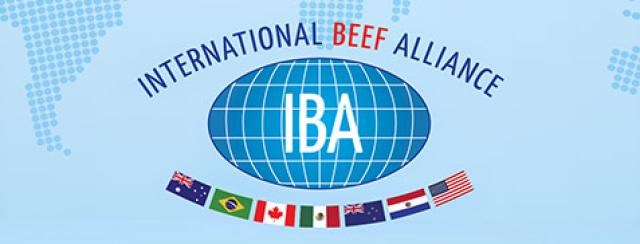The International Beef Alliance (IBA) salutes all farmers, ranchers, and workers along the food chain that keep working to provide food security in this crucial period.

The COVID-19 pandemic has presented the world with an unprecedented public health challenge and measures to curb the spread of the disease have shut down large swathes of the world economy. In the face of the global pandemic, food trade has been highlighted as essential for food security around the world. It has also shone a light on the importance of beef producers and our role in ensuring consumers have access to our nutritious and healthy product.
The International Beef Alliance (IBA) salutes all farmers, ranchers, and workers along the food chain that keep working to provide food security in this crucial period. The IBA is comprised of the cattle producer organizations from Australia, Brazil, Canada, Mexico, New Zealand, Paraguay and the United States, accounting for 64% of the world’s beef exports.
Traders globally have faced significant challenges in light of ongoing disruptions to international transport, particularly air and sea cargo, logistics and other parts of the supply chain that facilitate trade. Unfortunately, some WTO Members have introduced protectionist measures such as export prohibitions and restrictions creating additional complications and uncertainty in the trading environment. This volatility adversely impacts supply, prices and food availability.
The IBA is pleased to see WTO Members in the Joint Statement “Responding to the COVID-19 Pandemic with open and predictable trade in agriculture and food products” recognize that “as Members take measures to address the pandemic, it is imperative that these measures do not adversely affect trade in agriculture and agri-food products,” noting that this ultimately has adverse effects on food and nutritional security. As WTO Members supporting the Joint Statement acknowledge, it is crucial that effective transport and logistical services are maintained in order to support a functioning food supply chain.
Similarly, the IBA affirms its commitment to pursuing collaborative trade facilitation initiatives. The IBA seeks not only to keep markets open, but to pursue greater trade liberalization by advocating further trade reform via the elimination of both tariff and non-tariff barriers (NTBs). In response to the proliferation of NTBs, the IBA calls for the alleviation of unscientific and unjustified impediments that create significant distortionary and costly impacts on global beef trade. The IBA agrees to work toward removing these trade barriers.
The IBA also believes a strong multilateral rules-based trading system helps deliver more certainty to global trade, and IBA commits to continue to work with our respective governments to help strengthen it.
The rules-based system enables consumer choice on a range of products at varying prices and has made a significant contribution to the prosperity of the global beef value chain by allowing beef producers to sell our products to the world. The IBA encourages governments around the world to support agriculture sectors and economic recovery by ensuring functioning supply chains and open trade.
Source: https://www.wto.org/english/tratop_e/covid19_e/covid19_e.htm publication